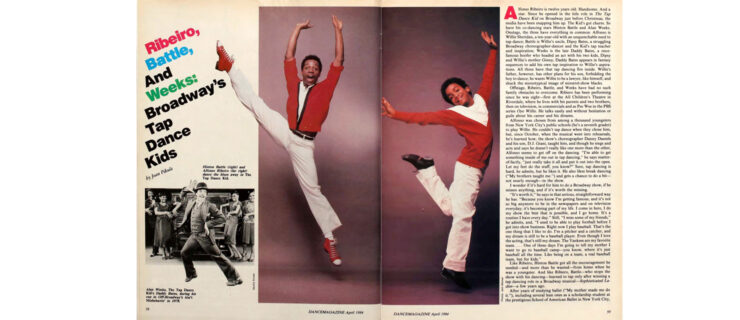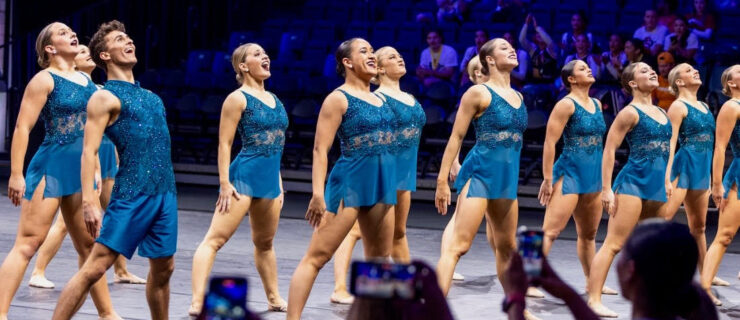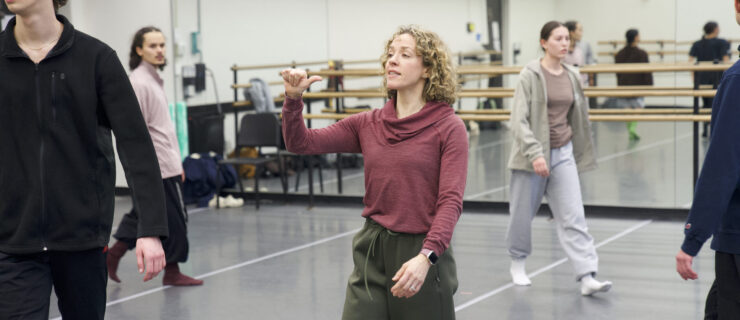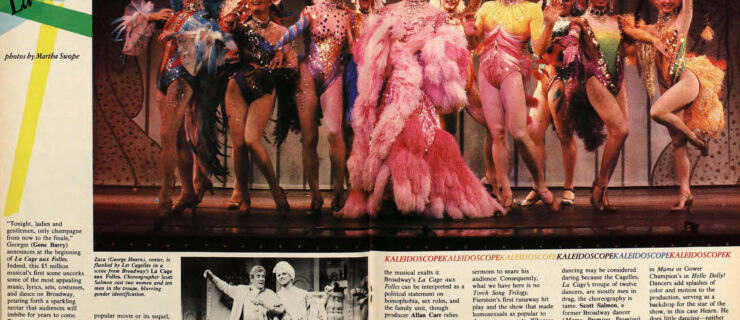Advice For Dancers
Q
Please help! I’m 17, and ever since I was diagnosed with anorexia last year, I feel this huge struggle inside of me. One part of me looks in the mirror and sees fat every time I eat. The other part really wants to eat so I can dance again. I’m trying to follow the program. I trust my nutritionist and psychologist. My regular doctor says I’m making progress. I’ve never had a weight problem, so I know that what I feel isn’t real. But how can I get over this horrible feeling that eating’s wrong?
Confused Ballerina
Philadelphia, PA
A
Give it some time! Right now, you feel conflicted because you’re changing your behavior. That often involves mixed feelings. An eating disorder is especially challenging, because it can feel like a loss of control. You are not alone. Dance Magazine featured a special report last month on struggling with anorexia (“The Mirror Has Two Faces”; order July issues at www.dancemagazine.com). Fortunately, you have a lot on your side. First of all, you’re confronting your problem. You also have a support team in place. The last component that can tip the scales in favor of change is your desire to dance. Imagine all the positive things that can develop from being strong enough to take class, and avoid situations that trigger negative feelings, like the mirror. Remember: There is a light at the end of the tunnel.
Q
I’ve often wondered why I can’t use aerobic machines or do step classes at the gym without getting more muscular. I know from reading your column that cardio work would help me with our current rep. We have a new director who likes pieces with a lot of modern and acrobatic moves. But I’m not sure how to do aerobics and look like a ballet dancer at the same time. Is it possible, or am I doomed?
Muscular Legs
Princeton, NJ
A
Many muscular dancers modify training regimens after they realize they’ve bulked up. Unfortunately, according to the latest research by dance medicine specialists, some dancers have more fast muscle fibers, which are nearly four times bigger others. On the plus side, these fibers contract faster, giving you to a larger jump. However, you need to use non-impact aerobic exercises, such as the elliptical machine, to avoid building up more muscle. It’s worth the effort. About 85 percent of ballet class does not prepare you for contemporary choreography’s high-intensity moves. Dancers who don’t engage in aerobic exercise during lay-offs and lighter rehearsal periods are more likely to get injured once their schedule goes into overdrive. Adding aerobic training will increase your stamina and ability to recover from those intermittent but intense moments on stage. The key, as with all supplemental training, is to do it during slow periods, not when you’re already exhausted.
Q
My friends are all stretching to try to increase their flexibility. Most do it before class, which I did too until I got injured. Is there a safe way to improve your stretch? I figured more is better, but it doesn’t seem to be working.
Laura
Boston, MA
A
There are a lot of myths about stretching, like the harder you push, the more flexible you’ll become. Yet if you push past 20 percent of your resting length, the chances are that you will damage your muscle. You can also tear muscle fibers by stretching when you’re cold, especially if you plop down into a split right before class. Surprisingly, stretching right before a performance can be equally detrimental by making your muscles weaker (who would have guessed?). The final area to guard against is overstretching when you’re too warm. Any activity that raises your body temperature 2 to 7 degrees above its normal level of 98.6 can make it easier to push a stretch too far, causing soreness and tightness the next day. Not surprisingly, you are more likely to get injured! What’s the answer? Less is more. Stretch only when you’re warm after jogging in place, doing a barre, and waking up your body. Then, be gentle. Remember, it’s not how hard you stretch but how often. When in doubt, don’t do anything that hurts!
Q
It’s been six weeks since I decided to quit dance. I hated it because of all the pressure to be perfect. But now I miss it. Is this weird? My mother thinks I’m crazy.
Mixed Up Teen
Seattle, WA
A
Why should it be weird? Adolescence is a time of transition, where it’s typical for teenagers to experiment. Dancers, in contrast, often zone in on one activity to the exclusion of others. While this kind of devotion can be a meaningful experience, it does entail a certain amount of sacrifice, especially in the social arena. Luckily, dance doesn’t have to be an all-consuming career choice for you to enjoy taking class during the week. You might also want to try other kinds of dance, like modern or hip hop, where there is less pressure to be “perfect”. Finally, try to remember that everyone goes through different stages in choosing their vocation. You can love dance without making it the center of your life.




